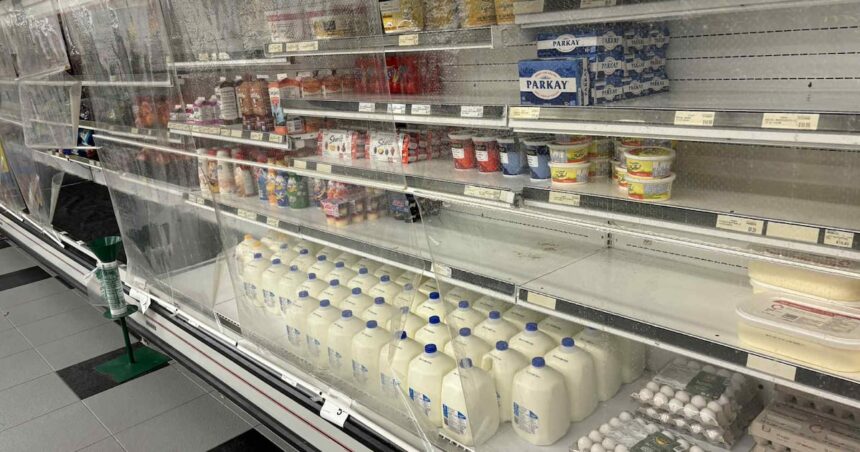The smell of smoke still lingers in what remains of Northern Man Grocer’s storage facilities, where owner Frank Whiteway now walks through charred ruins instead of stocked aisles. As wildfires continue to ravage parts of northern Manitoba, small business owners are facing catastrophic losses that extend far beyond the immediate damage of flames.
“Twenty-five years of building this business, gone in hours,” Whiteway told me during our conversation at his partially damaged store in Thompson. “We lost nearly $380,000 in inventory alone when the fire took out our main warehouse and refrigeration units failed in the power outage.”
Northern Man Grocer serves as a vital food source for several remote communities in Manitoba’s north, where grocery options are already limited. The business employs 12 local workers and provides essential delivery services to areas accessible only by limited road networks or air transport.
Provincial emergency officials report that the current wildfire season has already consumed over 650,000 hectares across Manitoba, with particular intensity in the northern regions. According to the Manitoba Wildfire Service, this represents nearly double the area affected during the same period last year.
“We’re seeing unprecedented conditions,” explained Dr. Hannah Reeves, climate scientist at the University of Manitoba. “The combination of drought conditions, earlier spring thaw, and increased lightning activity has created perfect conditions for these catastrophic fire events.”
For small business owners like Whiteway, insurance complications have added another layer of hardship. “Our policy covers structural damage, but the business interruption coverage is proving inadequate given the extended evacuation orders,” he explained. “Every day we can’t operate is another day we can’t serve our communities or pay our staff.”
The economic impact extends throughout the supply chain. Local farmers and producers who relied on Northern Man Grocer as their primary distribution channel are now scrambling to find alternative markets for their goods.
Manitoba’s Minister of Economic Development has announced emergency funding measures for affected businesses, but many owners express concern about the adequacy and timeliness of assistance. The CO24 Business analysis suggests that small businesses in remote areas often face significant delays in receiving disaster relief compared to their urban counterparts.
“The application process alone requires documentation that many of us don’t have access to right now,” Whiteway noted. “My filing cabinets are literally ash.”
Community response has been swift, with neighboring businesses organizing fundraisers and temporary storage spaces. The Thompson Chamber of Commerce has established an emergency business support network to coordinate resources and advocate for expedited assistance from provincial and federal programs.
“What’s at stake here isn’t just individual businesses,” emphasized Thompson Mayor Colleen Smook. “These are the economic pillars of our northern communities. When they suffer, entire towns feel the impact.”
Climate experts monitoring the situation warn that this may represent the new normal for northern Canadian communities. The CO24 News environmental monitoring team has tracked a 40% increase in wildfire frequency in Manitoba’s northern regions over the past decade.
As Whiteway begins the arduous process of rebuilding, the question facing many northern Manitoba business owners remains troublingly unanswered: In a region increasingly vulnerable to climate disasters, how can small businesses establish resilience against catastrophes that threaten not just livelihoods, but entire communities’ access to essential goods?






















